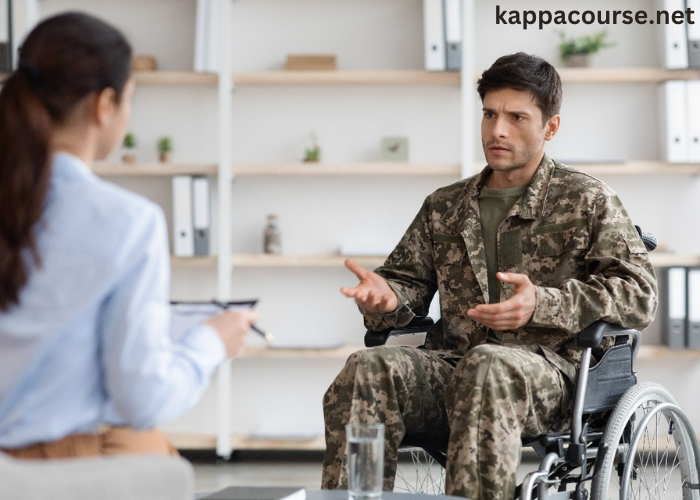After serving in the military, many veterans suffer from the ordinary and dangerous ailment known as post-traumatic stress disorder (PTSD). The path to recovery involves multifaceted support strategies aimed at addressing psychological, social, and legal challenges that accompany PTSD. Among the most crucial resources at a veteran’s disposal is the expert guidance offered by veterans disability lawyers. Their specialized knowledge is critical to navigating the often complicated procedures in claiming veterans’ disability benefits. Ensuring veterans are well-informed and supported throughout their recovery journey can significantly improve their quality of life.
The Role of Support Systems in PTSD Recovery
A robust and caring support system is vital for veterans dealing with post-traumatic stress disorder. Having a dependable social network of family, friends, and fellow service members provides a strong foundation that can alleviate feelings of isolation. The acceptance and understanding from these relationships often create a safe space, enabling veterans to share their experiences openly and seek the help they need without judgment. Professional support, which may include therapists and support groups where one can share stories and coping strategies, also plays an essential role, offering guidance and therapies that help in managing PTSD symptoms and improving overall mental health.
Therapeutic Interventions and PTSD
Therapy is a cornerstone of PTSD treatment, with various methods showing significant efficacy. Cognitive Behavioral Therapy (CBT), for instance, has been extensively researched and is widely regarded as highly effective for individuals grappling with PTSD. CBT helps individuals reframe negative thought patterns and overcome avoidance behaviors that are characteristic of PTSD. Through bilateral stimulation, veterans can process and recontextualize painful memories using Eye Movement Desensitization and Reprocessing (EMDR), another innovative therapeutic approach. With a range of therapeutic interventions available, veterans have the opportunity to find the modalities that best suit their individual needs and contribute positively to their mental health journey.
Wellness Practices That Complement Therapy
Integrating wellness practices into daily routines can significantly bolster the effects of therapy for veterans with PTSD. Mindfulness exercises, tai chi, yoga, and regular physical exercise have dual physical and psychological benefits. They enhance mental health by reducing anxiety and stress, promoting relaxation, and improving mood. For many veterans, these practices provide an additional coping mechanism, empowering them to take a proactive stance in their recovery by focusing on their overall well-being.
Legal Support for Veterans with PTSD
The process of claiming veterans’ disability benefits for PTSD can often be complex and overwhelming. This is where the expertise of veteran disability lawyers is indispensable. They specialize in handling cases specific to military service and understand how to optimize a veteran’s chance of successfully obtaining their rightfully deserved benefits. From gathering medical records to articulating the impact of PTSD on daily functioning, a legal professional can be a staunch advocate for a veteran’s rights and benefits. Their support can significantly impact the situation by reducing the stress of legal proceedings and allowing veterans the space they need to focus on their recovery.
Community Resources for Veterans
Veterans are not left to face PTSD alone. Organizations and initiatives devoted to meeting the unique needs of veterans coping with the fallout from their service-related experiences may be found in almost every community. Organizations that offer specialized PTSD programs provide a valuable service. These resources offer therapy and often include activities and opportunities that foster the pursuit of hobbies, skills, and education. These can serve as additional coping strategies and inspire a purposeful post-service life.
Online Platforms and PTSD Support
Access to online resources has revolutionized how support is extended to veterans with PTSD. These platforms can range from online therapy sessions to discussion boards where veterans can anonymously discuss their experiences and receive peer support. These virtual communities often provide invaluable resources, information, and a sense of belonging to many who might otherwise feel disconnected from support systems in their physical surroundings.
PTSD and Employment: Finding Supportive Work Environments
Having a fulfilling and understanding workplace is critical for veterans seeking to transition back into civilian life while managing symptoms of PTSD. Employers who are aware of PTSD can assist veterans in maintaining their employment by providing accommodations like a quiet workstation or a flexible work schedule. Furthermore, some businesses go above and beyond by offering initiatives that actively seek out and assist veterans, appreciating the invaluable expertise and experience they provide to the workforce.
Real Stories of Triumph over PTSD
Hearing about others who have successfully coped with PTSD can be incredibly inspirational for those in the throes of their battle. Such stories often provide comfort, hope, and concrete strategies that can be applied to one’s life. They also serve as a reminder that recovery is possible and that with the right combination of support, therapy, and personal resilience, veterans can overcome the challenges posed by PTSD.







